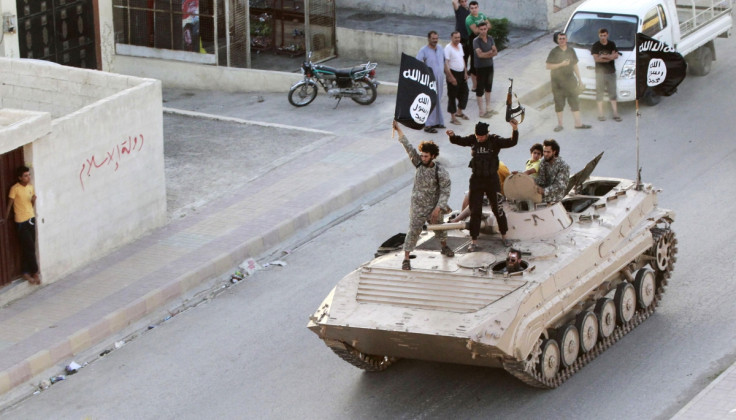Why Isis hates being called Daesh: What's the correct name for the world's most dangerous terrorists?

UK Prime Minister David Cameron has told the House of Commons, at the beginning of the vote on whether to extend UK bombing to Syria, that Britons should cease referring to the terrorist group that controls swathes of Iraq, Syria, Libya and Egypt's Sinai as Islamic State, Isis or Isil and begin using Daesh.
The term has already become official terminology in Russia and France, where it was adopted as far back as September 2014, and has a major advantage in that IS fighters and leaders hate it. The word is an Arabic acronym of al-Dawla al-Islamiya fi Iraq wa ash-Sham – meaning the Islamic State of Iraq and al-Shams – but Daesh when spoken sounds similar to the Arabic words for "the sowers of discord" (Dahes) or "one who crushes underfoot" (Daes).
Due to Arabic wordplay, it could also be an insult and IS threatened "to cut the tongue of anyone who publicly used the acronym Daesh, instead of referring to the group by its full name", the Associated Press wrote in September 2014.
Muslims have always preferred to use the term Daesh rather than Islamic State, given that, they argue, the territory the terrorist group controls in Iraq and Syria is neither Islamic nor a state.
Many object to the term Islamic State because "the word 'state' implies a system of administration and governance", said David L Phillips, director of the Peace-Building and Rights Program at Columbia University. "It's not a term that would be used to characterise a terrorist group or militia that is merely rolling up territory."
But there are practical concerns too: al-Shams is the Arabic word for the area of the Middle East encompassing Syria and Lebanon and IS influence has now spread across North Africa, the Gulf and elsewhere in the Middle East. It is argued that Daesh has outgrown the titles Isis or Isil (Islamic State of Iraq and the Levant – Levant being the English term for Syria, Lebanon, Jordan, Israel and the Palestinian Territories), since it began its low-level insurgency in the deserts of eastern Syria and ploughed into Mosul in the summer of 2014.
It is not the first time Cameron has asked Britain to refer to Islamic State by another name, in June, the prime minister asked the BBC to start referring to IS as Isil – meaning the Islamic State in Iraq and the Levant – rather than Islamic State in Iraq and al-Shams.
It is not the first time that a Conservative has pushed for the adoption of the term Daesh. In July, Rehman Chishti, the MP for Gillingham and Rainham, launched a campaign to cease calling IS 'Islamic' State in order to uncouple the group from its false association with Islam and help challenge its legitimacy.
"We need to get our terminology right and not link the great religion of Islam with this terrorist organisation," Chishti, who is of Pakistani origin, told IBTimes UK.
Other names for Daesh
Islamic State: This is the English version of what the terror group calls itself. It also claims to be a caliphate, which is a state ruled by a caliph, which is Arabic for "successor", meaning successor to the Islamic Prophet Muhammad. The last generally acknowledged Muslim caliphate was the Ottoman Empire, which ended in 1923. Many governments and media refuse to use this name because it gives the group legitimacy as a state and a representative of Islam.
Isis: The militant group, which began as the Iraqi branch of al Qaeda during the US occupation, gained this name after it invaded Syria in 2013. Isis is short for "Islamic State in Iraq and Syria", or "Islamic State of Iraq and al-Sham", which is an old Arabic term for the area.
Isil: Isil translates to "Islamic State of Iraq and the Levant". The Levant is a geographical term that refers to the eastern shore of the Mediterranean – Syria, Lebanon, Palestine, Israel and Jordan. It is the term the US government uses since the "Levant" is apparently a better translation for al-Sham, the Arabic name for the region.
© Copyright IBTimes 2025. All rights reserved.





















